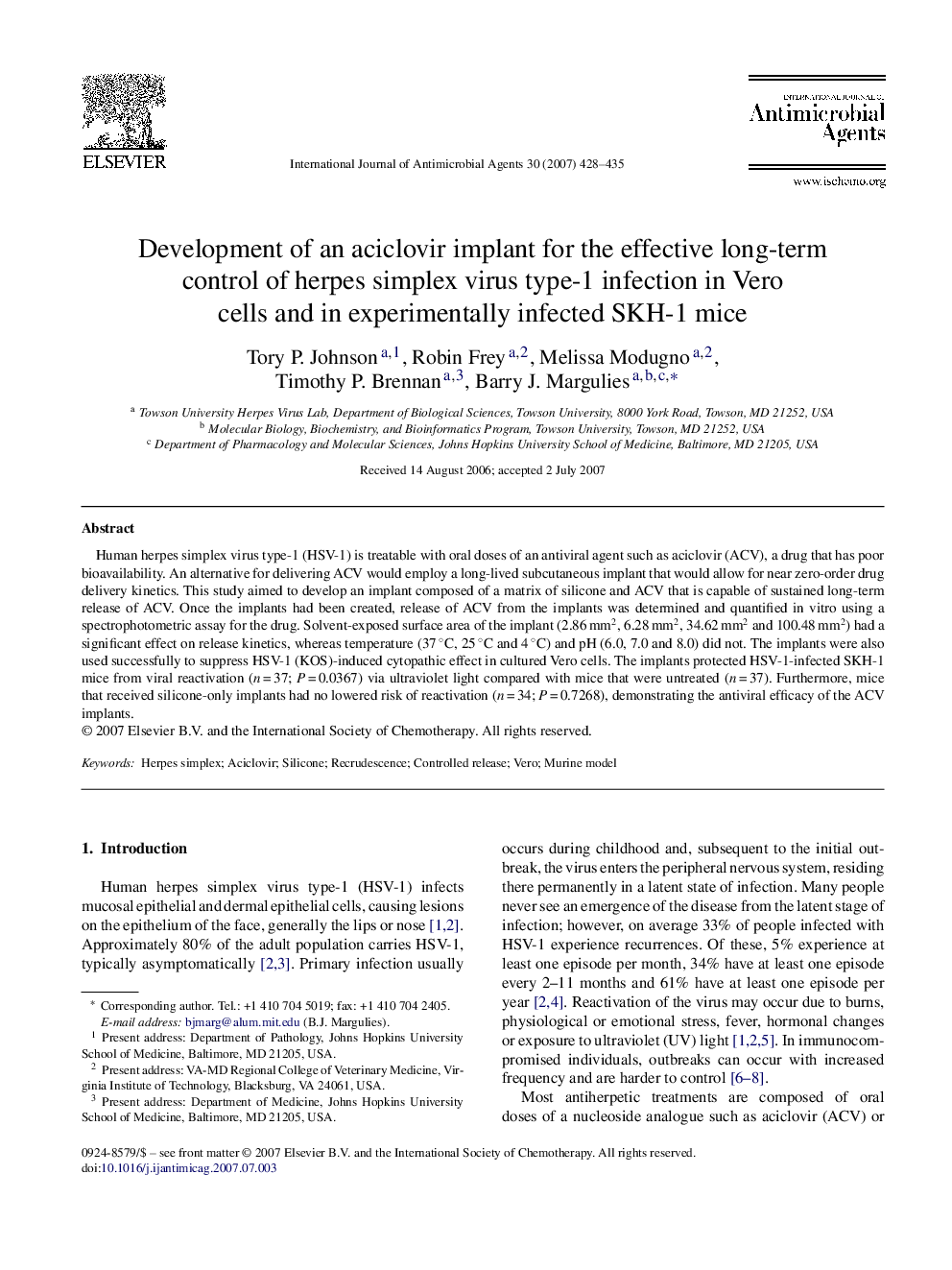| کد مقاله | کد نشریه | سال انتشار | مقاله انگلیسی | نسخه تمام متن |
|---|---|---|---|---|
| 3360790 | 1591879 | 2007 | 8 صفحه PDF | دانلود رایگان |

Human herpes simplex virus type-1 (HSV-1) is treatable with oral doses of an antiviral agent such as aciclovir (ACV), a drug that has poor bioavailability. An alternative for delivering ACV would employ a long-lived subcutaneous implant that would allow for near zero-order drug delivery kinetics. This study aimed to develop an implant composed of a matrix of silicone and ACV that is capable of sustained long-term release of ACV. Once the implants had been created, release of ACV from the implants was determined and quantified in vitro using a spectrophotometric assay for the drug. Solvent-exposed surface area of the implant (2.86 mm2, 6.28 mm2, 34.62 mm2 and 100.48 mm2) had a significant effect on release kinetics, whereas temperature (37 °C, 25 °C and 4 °C) and pH (6.0, 7.0 and 8.0) did not. The implants were also used successfully to suppress HSV-1 (KOS)-induced cytopathic effect in cultured Vero cells. The implants protected HSV-1-infected SKH-1 mice from viral reactivation (n = 37; P = 0.0367) via ultraviolet light compared with mice that were untreated (n = 37). Furthermore, mice that received silicone-only implants had no lowered risk of reactivation (n = 34; P = 0.7268), demonstrating the antiviral efficacy of the ACV implants.
Journal: International Journal of Antimicrobial Agents - Volume 30, Issue 5, November 2007, Pages 428–435